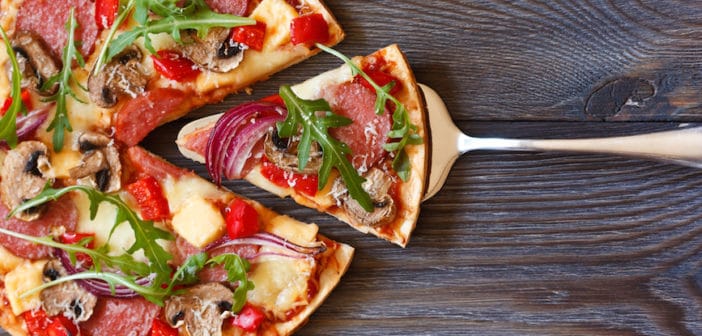This post was originally published on December 21, 2015.
Most of us have known for a long time that processed foods aren’t the best, but recently the World Health Organization (WHO) officially revealed that as little as two slices of bacon a day increases a person’s risk for cancer by nearly 20 percent. Simultaneously, CNN reported on a study about how certain foods are addictive—typically those that are processed or high in sugar—in the same way that alcohol and drugs are.
Rehab for Bacon?
Now, when it comes to bacon causing cancer, the article stresses that the study is based on daily habits and that most meat has nutritional value as well (although, maybe not bacon). This study does not encourage people to give up bacon entirely, instead it highlights something that most alcoholics and addicts truly struggle with—moderation. And while all red meats might be somewhat carcinogenic, the real danger comes when we are consuming crap like pre-packaged bologna slices on a regular basis. Which brings me to the issues addressed by CNN.
According to a study done at the University of Michigan, pizza, chocolate, cookies, chips, ice cream, fries, cake and soda came out on the top of the list of foods that people tend to binge. Scientifically, the addictive pull has to do with these foods’ high glycemic index, which means that they cause a spike in blood sugar. This is a noticeable chemical reaction in the brain that makes us feel “better” or even “high” for a short period of time. Once we experience that chemical change, we like it and want to continue to feel that way. So we indulge despite the consequences of overeating. Sound familiar?
Almonds or a Milkshake? You Decide
Of course, this information is not a shocker to those of us who have experience messing with our brain chemistry (and liking it). What is kind of a shocker is the authors of the study feel that highly processed foods might be intentionally created to be addictive by the added fat and refined carbohydrates.
Mike Robinson, an assistant professor of psychology, neuroscience and behavior at Wesleyan University, says that “although a handful of almonds and a milkshake might have the same number of calories, they will have a different effects on your brain and your reward system, and you will be much more likely to go back to get more of the milkshake.” Whoa. Did he just say that a handful of almonds and a milkshake have the same number of calories? I just died inside.
Although heroin addiction and sugar addiction are vastly different in terms of health risks and withdrawal, just because you are no longer slamming dope does not mean you can feel good about slamming a dozen donuts. While there is no risk of dying from a donut overdose (unless you are diabetic), over time, the health risks associated with processed and sugary foods are very, very real. Obesity, heart disease, diabetes and cancer are no joke.
“Fat” Shows Us We Aren’t Alone
The independent feature, Fat, by comedian and writer Mark Phinney (available on-demand December 15), depicts the struggles of one man’s battle with food addiction. Though the starring role is played by actor Mel Rodriquez, the story is personal—based on an essay Phinney wrote for Salon. The indie has been well received, screening at the 2013 Toronto Film Festival and currently being shown in select theaters in Boston.
If you don’t have any issues with food, congratulations, you are a fantastical purple Pegasus that I have no point of reference to understand. But if you are like almost every person I know, you have—at some point in your life—wished you hadn’t ordered a large plate of onion rings to split with yourself, sent out for a pepperoni pizza to be delivered while sitting home alone on a Friday night or consumed an entire pint of Talenti Cookie Dough Gelato in one sitting (like you had a choice). My point is, many of us—especially in recovery—have had to wrestle with the junk food or sugar demon once or twice (or every night). We know how hard it is to battle, even when we really do want to lose those 10 to 20 to 50 pounds.
Sponsored DISCLAIMER: This is a paid advertisement for California Behavioral Health, LLC, a CA licensed substance abuse treatment provider and not a service provided by The Fix. Calls to this number are answered by CBH, free and without obligation to the consumer. No one who answers the call receives a fee based upon the consumer’s choice to enter treatment. For additional info on other treatment providers and options visit www.samhsa.gov.





